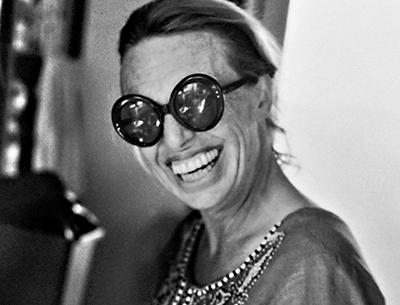Barbara B. Bartle

As a child Barbara Bishop Bartle spent summers in East Hampton Village in a French provincial house near the corner of Woods Lane and Ocean Avenue. It had been built by her maternal grandparents in 1922, on what was then their farmland, as a wedding present for her parents, and aunts, uncles, and grandparents all lived nearby.
She recalled those summers in her memoir, “A Vanished World: Growing Up in the Thirties and Forties in New York and East Hampton,” self-published in 2006. “She loved the village to the end of her life,” her son Andrew Bartle of East Hampton and New York wrote in an email.
Mrs. Bartle died on Feb. 9 in Cambridge, Mass., surrounded by her children and caregivers. She was 88 and had progressive dementia.
Born in New York City on March 21, 1927, to Dr. Louis Faugeres Bishop and the former Kathleen Sinclair, she grew up here and in Manhattan and graduated from Miss Hewitt’s Classes, now the Hewitt School.
While at Miss Hewitt’s, she was president of the student council, editor-in-chief of The Venturer, and a champion fencer. She attended Radcliffe College afterward.
She met her husband, Dr. Stuart Hall Bartle, in East Hampton after World War II. They were married on Dec. 27, 1949, after she graduated from college. The couple, with four children, lived in Charlottesville, Va., from 1959 to 1966, and Mrs. Bartle earned a masters degree in history from the University of Virginia while raising her children.
She became active in the civil rights movement in Charlottesville and formed “a lifelong dedication to social issues with her thesis on Reconstruction and continuing later with her work on the Harlem Renaissance, and long-term volunteer efforts with the League of Women Voters,” her family wrote.
After the Bartles returned to New York in 1966, she worked with Casper Citron, a radio host, and then earned her teachers certificate from Columbia University’s Teachers College. She taught history at Julia Richman High School for a year and at the Chapin School for 14 years.
In 1986, she and her husband relocated to Zimbabwe, where she taught history at the Roosevelt Girls High School in Harare for two years. They settled in Lee, Mass., upon their return to the United States, and she taught part-time at Berkshire Community College in Great Barrington and lectured on the history of the underground railroad and W.E.B. DuBois, who was a native of Great Barrington.
“She was devoted to her husband, family, friends, colleagues, and students, to whom she showed her boundless generosity, and a playful, keen, dry sense of humor,” her family wrote.
They described her as an “elegant tennis player,” as well as a dedicated gardener, skilled raconteur, and lifelong political activist. She “brought her modesty, charm and elegance, as well as her strong work ethic and high standard of integrity, to every part of her life.”
Mrs. Bartle was active in Trinity Episcopal Church in Lenox, Mass., the Lenox Garden Club, the Mahkeenac Boat Club, the Bluestockings, and the Cosmopolitan Club in Manhattan.
Although she had not lived on the South Fork for many years, she often talked of her time here and frequently visited her children in East Hampton, usually to coincide with the Ladies Village Improvement Society’s fair in July.
In addition to her son Andrew Bartle, she is survived by her children Christopher Hall of Dover, Mass., Elizabeth Dowling of East Hampton and Cambridge, and Marion Stuart of Weston, Mass. She was “an attentive and beloved grandmother” to 11 grandchildren. She also leaves a sister, Anne Bishop Cannon of Vero Beach, Fla., and many nieces and nephews. Her husband died before her, as did a brother, Louis Faugeres Bishop III, and a sister, Mary Bishop Millspaugh.
A service will be held on March 5 at 2 p.m. at Trinity Church in Lenox. Memorial donations have been suggested to St. Luke’s Episcopal Church, 18 James Lane, East Hampton 11937.
